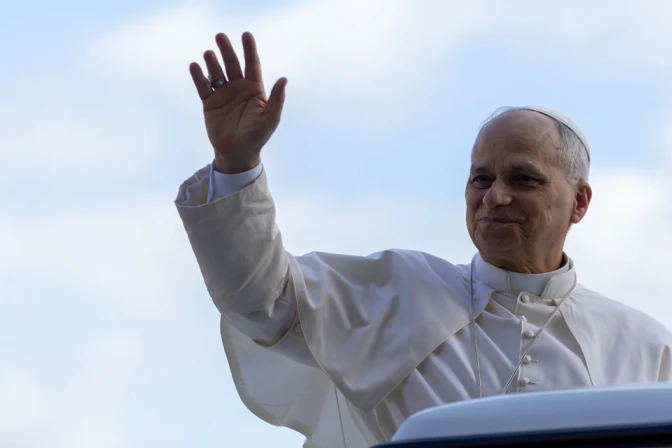Babiš triumphs in Czechia, sending ripples through the EU
PRAGUE — Right-wing populist Andrej Babiš and his ANO movement gained a decisive win in a pivotal Czech parliamentary election, preliminary results showed on Saturday, in a vote that risks turning Czechia into another headache for the EU.
ANO was well ahead with 35 percent of the vote late Saturday, with ballots counted in more than 98 percent of electoral districts. That compared with Prime Minister Petr Fiala’s governing center-right coalition Spolu (Together), which had around 23 percent.
“I am happy,” Babiš told journalists at campaign headquarters Saturday evening. He was greeted with loud applause from ANO members while an old Italian hit by Ricchi e Poveri played over the loudspeakers.
Based on past election experience, the State Election Commission, which is compiling provisional results from more than 14,800 locations across Czechia and worldwide, is expected to confirm the final outcome by Monday. But the introduction of new mail-in voting could cause delays.
In total, 4,462 candidates and 26 parties are competing. Voter turnout was estimated at 68 percent, the highest since the 1998 elections.
The STAN (Mayors and Independents) party, the fourth member of the current governing coalition, trailed in third with 11 percent, followed by the far-right, eurosceptic Freedom and Direct Democracy (SPD) at 8 percent — down from 13 percent in recent opinion polls. The Pirate Party, former governing coalition member that quit last year, was on 8 percent.
The election surprise is the right-wing populist Motorists for Themselves party, which is on track to enter the parliament with around 7 percent despite hovering barely above the 5 percent threshold during the campaign. The far-left Stačilo! (Enough) party, which had been polling higher, is likely to fall short.
Europe has been watching the Czech elections with caution, as Babiš has vowed to scrap the ammunition initiative for Ukraine, challenge NATO’s plans to boost military spending, and confront the European Commission over the Green Deal.
Critics fear that if the right-wing billionaire regains power, the Czech Republic could become a new bête noire for the EU alongside Viktor Orbán’s Hungary and Robert Fico’s Slovakia.
“I believe that if we look at his statements and his allies in Europe — like Viktor Orbán and what he has done with Hungary — he [Babiš] will start pushing the Czech Republic toward the margins,” Czech Foreign Minister Jan Lipavský told POLITICO.
“I don’t want the Czech Republic to end up on the margins of Europe, like what happened to Hungary or Slovakia,” Lipavský said. “And today there is a big difference between being part of a willing coalition or not.”
Alarming prospect
Babiš will likely fall short of securing a majority in the 200-seat lower house, meaning he will need parliamentary support to form a government. All of the country’s mainstream parties have ruled out working with Babiš after the election, leaving him no choice but turn to more extreme options.
His likely partners are Motorists for Themselves, who, just like Babiš, do not want to take Czechia out of the EU or NATO; or SPD, who do not share that stance. That prospect has alarmed analysts and political opponents alike. ANO and the Motorists are part of the Patriots for Europe group in the European Parliament, which was co-founded by Babiš.
Babiš on Saturday evening said he aims to form a single-party minority government, supported by the SPD and the Motorists for Themselves.
“We will lead talks with the SPD and Motorists and strive for a single-party government led by the ANO movement,” he said.
That is just the sort of arrangement that raises warning flags for Otto Eibl, a political analyst at Masaryk University in Brno.
“I don’t think that a government led by Andrej Babiš, if it were a minority government, would necessarily mean the same thing as what we see with Fico in Slovakia or Orbán in Hungary,” Eibl said. “Where it starts to become a real issue is with a coalition government — or even a minority government propped up by the communists, SPD, or any of those parties that make up these unnatural coalitions. That’s where the problems could arise,” he said.
Babiš campaigned on promises of cheaper energy, higher pensions and putting Czechia’s interests ahead of Ukraine’s. His populist appeal is likened to that of Donald Trump in the United States.
A billionaire agricultural tycoon, Babiš already served as prime minister from 2017 to 2021. He ran for president in 2023 but lost to Army General Petr Pavel.
Babiš is a well-known figure in Brussels, especially due to a long-standing legal case in which he is suspected of defrauding the EU of €2 million to allow his agriculture empire Agrofert to receive subsidies intended for medium-sized businesses.
That case is now back on the table as Babiš is currently awaiting a verdict from the Prague District Court. Unless new evidence is found, the court is obliged to take its lead from Prague’s High Court, which in June overturned an earlier ruling clearing Babiš of wrongdoing.
Babiš denies any guilt, insisting the case is politically motivated. However, it could still jeopardize his return as prime minister if the president chooses not to appoint him over his conflict of interest tied to Agrofert, a scenario which remains unlikely but not impossible.
President Pavel said he will meet all the parties that make it into the parliament on Sunday.




















:quality(85):upscale()/2023/09/18/918/n/1922398/a1136b676508baddc752f5.20098216_.jpg)
:quality(85):upscale()/2025/10/09/670/n/1922283/00b944c868e7cf4f7b79b3.95741067_.jpg)
:quality(85):upscale()/2025/10/15/765/n/1922398/29c37a6e68efd84bb02f35.49541188_.jpg)
:quality(85):upscale()/2025/09/09/891/n/1922283/7222624268c08ccba1c9a3.01436482_.png)
















